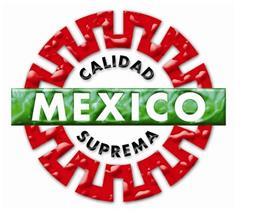
México Calidad Suprema (MCS) – the national certification scheme for Mexican agriculture – toured major European cities during July in a bid to raise awareness of the programme among European buyers and importers. MCS hosted both press and trade meetings in London, Paris, Rotterdam, Brussels and Hamburg to communicate the significant steps made by the organisation to certify growers, packers and suppliers under MexicoGAP – the agricultural standard, which was benchmarked against Globalgap in 2006.
“MexicoGAP is not very well known in Europe, so through this trade mission we want to show how much has been done in Mexico to meet the requirements of our clients,” Fernando Fernández, director of global promotion for MCS, told Eurofruit during his trip to London.
“The Mexican fresh produce business is currently going through a period of innovation and modernisation in response to ever changing market demands,” he added. “Looking to the future, those companies with MexicoGAP certification will be best placed to take advantage of opportunities to expand the marketplace.”
To that end, Mexico Calidad Suprema is certifying an increasing number of suppliers in accordance with the MexicoGAP standard in an effort to boost their presence on the European market, where Mexico sees much potential to diversify its export portfolio since North America continues to dominate the nation’s overseas sales.
“Mexico sees opportunities to explore new markets in Europe,” Fernández points out. “We know Europe is a good option because it’s demanding products and standards which Mexico has to offer. As both certified growers and volume increases we will need more avenues in which to distribute our produce. We want to double our exports to Europe.”
MCS regards the UK, France and the Netherlands as outlets with particular potential to receive greater volumes of grapefruit, Persian limes, avocados, mangoes, table grapes, bananas, pineapples and papayas from Mexico. The country currently exports agricultural products to more than 40 countries worldwide (including some new niche markets), with sales valued at US$17.6bn last year, according to the World Trade Atlas. Between January and March 2010, MCS reports that fruits and vegetables accounted for US$56m of Mexico’s agricultural sales – an increase of 23.2 per cent when compared with the year-earlier period, thanks largely to the 49.8 per cent growth in tomato export value, the 49.8 per cent rise in green vegetables and the 66.3 per cent upturn in strawberries. “Among the most notable successes during this period was the achievement in overseas sales because of the progress being made to reduce field pests, alongside food safety measures and increased production,” Fernández observes.
Between 2008 and 2010, the number of companies certified under the MCS scheme has reportedly risen from 230 to 411 – an impressive growth rate of around 125 per cent. Currently, the fruit industry represents 48 per cent of all MCS-certified companies, while the vegetable sector accounts for a further 15 per cent. Last year, MCS carried out a total of 411 audits in the country’s fruit, vegetable, meat and aquaculture industries. So far this year, the organisation has conducted significantly more audits (481) in the fresh produce sector alone, working mainly with suppliers of berries, avocados, Persian limes and herbs.






No comments yet